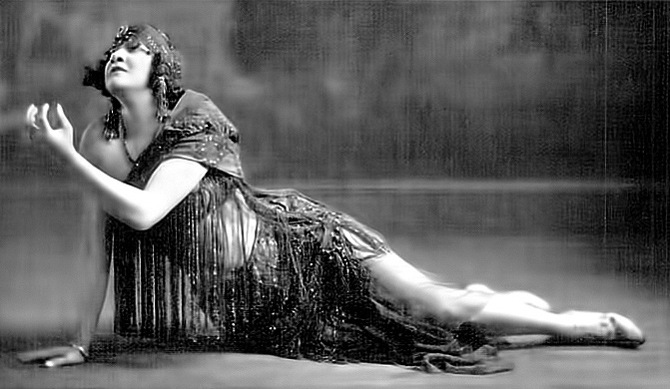
Evelyn Preer
By Cassandra Geraghty @ayearofsilents
“The First Lady of Screen” came from humble beginnings but her exuberant personality destined her for stardom. Evelyn Preer was born in Vicksburg, Mississippi in 1896 and moved to Chicago at two after the death of her father. She first began acting in high school with the “Lady American Minstrels”. Not long after, she was the lead female performer in Charley Johnson’s Vaudeville Troupe and would spend her time preaching on street corners with her mother to raise money for her Pentecostal church.
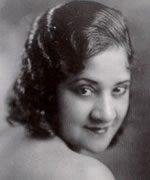
Evelyn Preer
It was while on tour with the vaudeville troupe that she was spotted by filmmaker Oscar Micheaux, who is credited with being the first major African-American feature filmmaker. He was drawn to her magnetism, casting her in his first film “The Homesteader” in 1919 followed by “Within Our Gates” in 1920.
Michaeux’s pictures were considered “race films” featuring all African -American casts and designed to appeal to an African-American audience. Unlike their depictions in Hollywood films of maids and servants, Michaeaux’s films fought those stereotypes by depicting them as educated and respectable. Evelyn’s starring roles in these pictures gained her the title of “The First Lady of Screen” among African American audiences.
In 1920 Evelyn joined the legendary theatrical group “The Lafayette Players”, founded by Anita Bush, and in between films would perform everything from Shakespeare to Oscar Wilde.
In all she starred in ten films with Micheaux including “The Brute”, “Birthright” and “The Devil’s Disciples” until he could no longer afford her as she became more sought after.
In 1924 Evelyn married fellow actor and costar Edward Thompson. At this point she was not only credited with being the first African American celebrity and “The First Lady of the Screen” but she also performed in crossover plays, including working as an understudy to Lenore Ulrich in 1926s Broadway play, “Lulu Belle”.
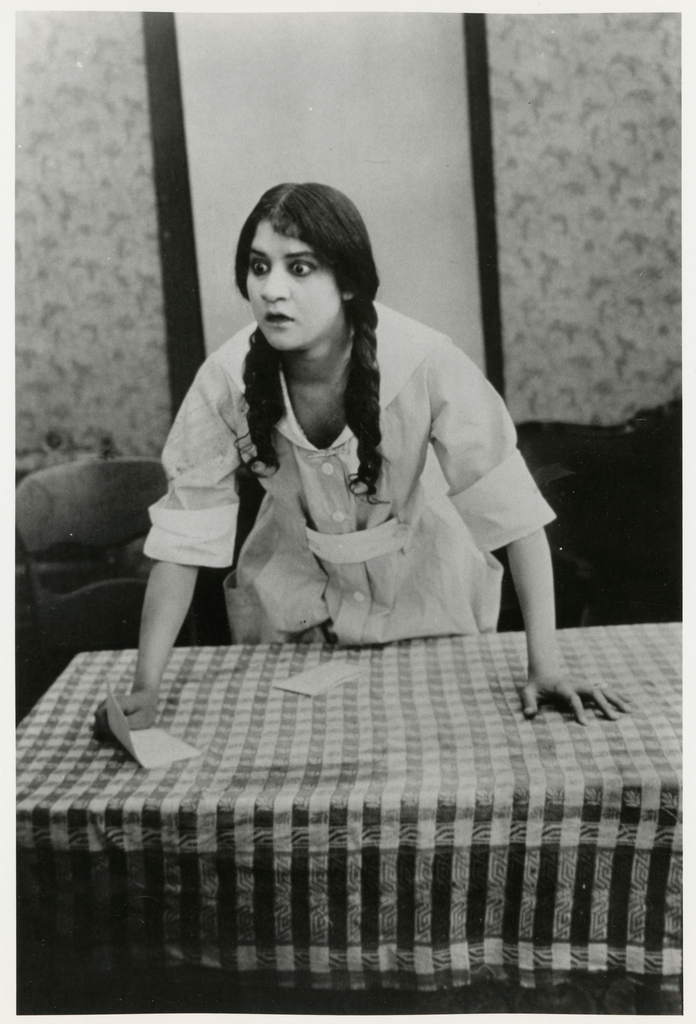
Evelyn Preer in “The Homesteader”
In 1928 she performed in the play “Rain” in Los Angeles and her starring role was considered a major breakthrough for a black actress, garnering attention from white audiences as well. During this time she would also sing and perform with Duke Ellington, making recordings under the name “Hotsy” Jarvis.
After leaving Micheaux, Evelyn made three films as a contract player for Paramount, “Melancholy Dame”, “The Framing of the Shrew” and “Oft in the Silly Night” but she refused to perform in roles she felt demeaned her race.
In 1930 she made her first talkie “Georgia Rose”, the first black actress to do so. She continued to perform in two more Hollywood films, although uncredited- “Ladies of the Big House” with Sylvia Sidney and “Blonde Venus” in 1932 with Marlene Dietrich.
In April of 1932 Evelyn gave birth to her daughter Edeve. Unfortunately, Evelyn suffered from health complications soon thereafter and she passed away in November of double pneumonia. She was only 36 and thousands attended her funeral. Evelyn Preer had a rich and successful career that transcended racial barriers and she deserves to be remembered for her contributions to film and theatre.
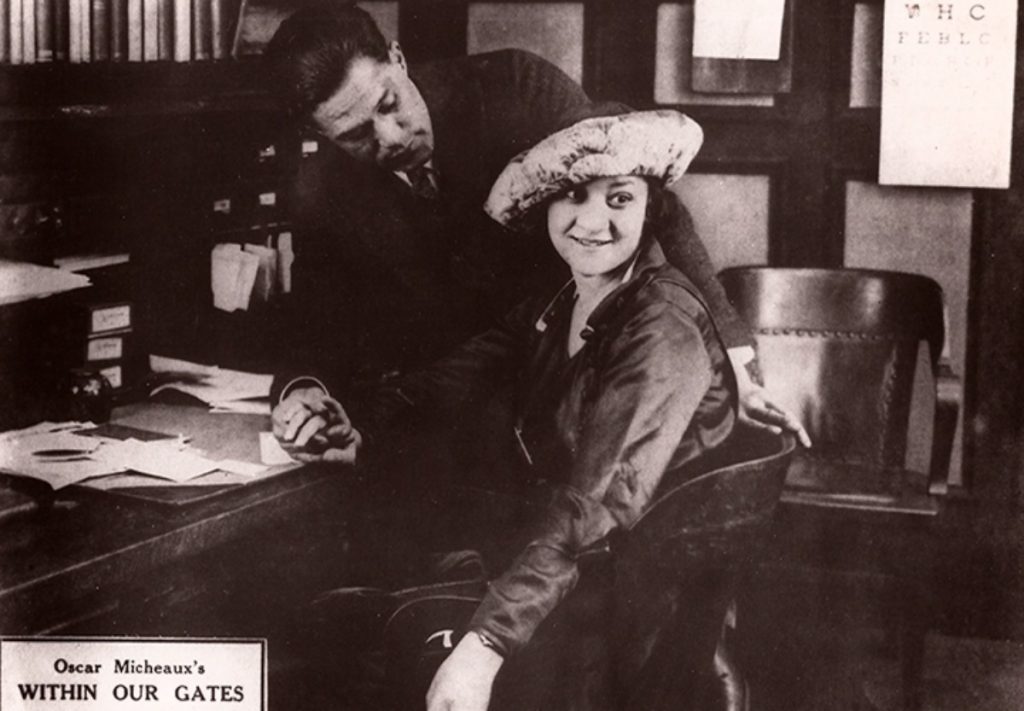

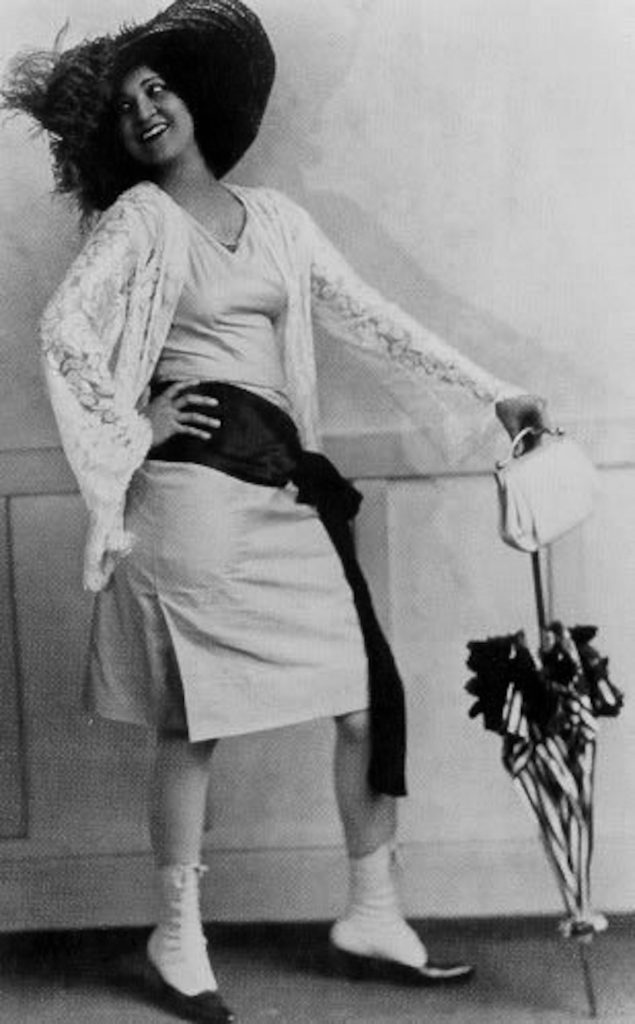


Hello, thanks for such a great, informative website. I appreciate your work in preserving history. My aim is the same in my work and currently I want to feature actress, Evelyn Preer in my 2027 Black History calendar.
My question is whether you know the source of the photo images used in your website feature?
I appreciate any information you could give. thanks in advance for your time and consideration.
Sincerely,
G. Theodore Catherine
IOKTS
6817 Georgia Ave. #207
Washington, DC 20012
202.450.6430.